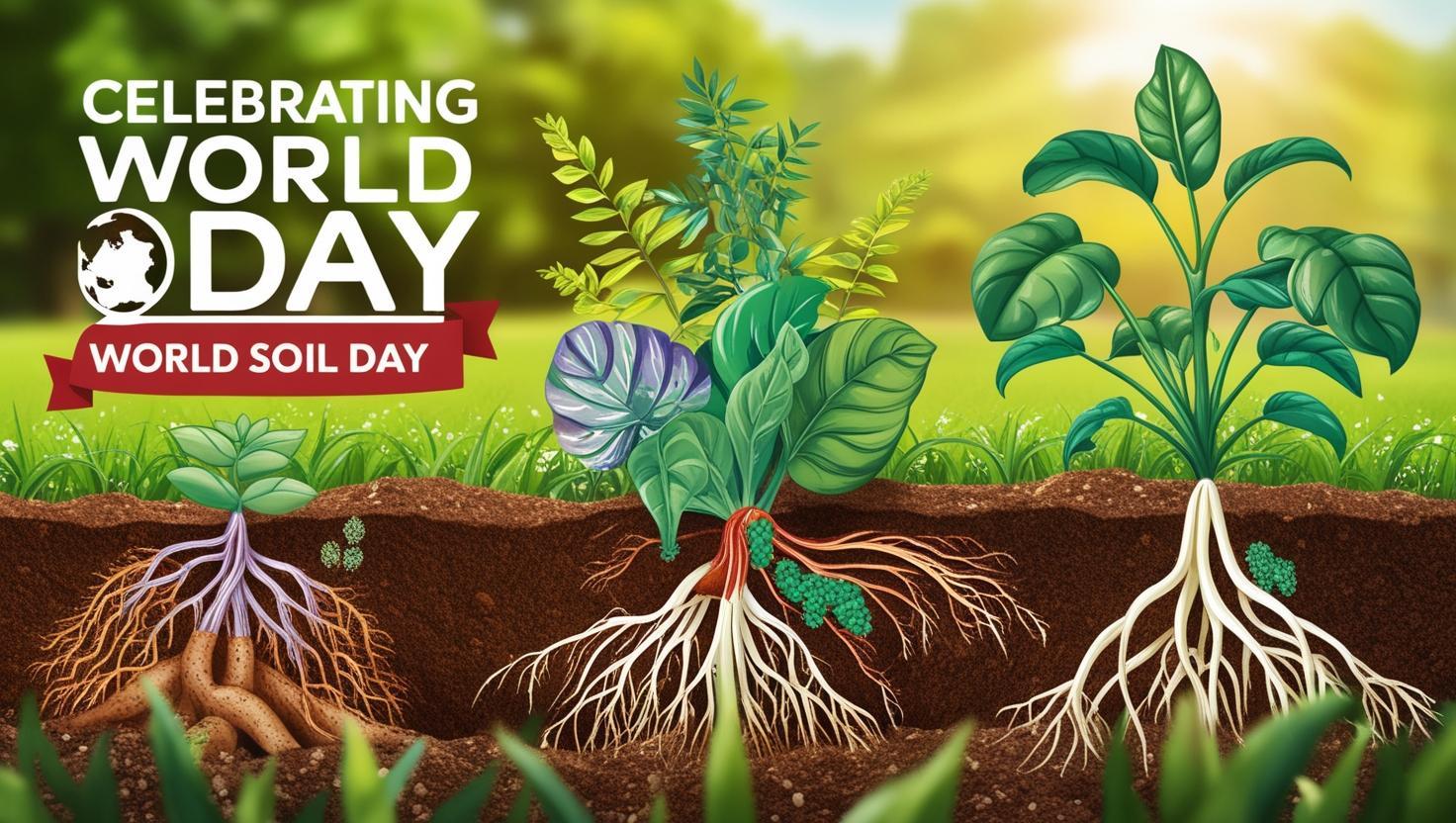WORLD SOIL DAY: CELEBRATING AND PROTECTING THE EARTH'S VITAL RESOURCE
Author: Aditya Kumar
Date: December 5, 2023
World Soil Day, celebrated annually on December 5th, is a day dedicated to raising awareness about the importance of soil and its vital role in sustaining life on Earth. The observance emphasizes the need for global action to preserve soil health, promote sustainable land management practices, and address the challenges facing soil ecosystems worldwide.
The Importance of Soil
Soil is the foundation of all terrestrial life. It provides a habitat for billions of microorganisms, helps in the production of food, regulates water, and plays a key role in the global carbon cycle. Healthy soil is crucial for ensuring food security, reducing poverty, and combating climate change. It supports the growth of plants, including the crops that make up the bulk of the human diet, as well as trees and other vegetation that contribute to the planet’s ecosystem.
Despite its importance, soil is often taken for granted. In many parts of the world, soil degradation is a pressing issue, threatening agricultural productivity and biodiversity. Factors such as deforestation, overuse of chemical fertilizers, pollution, urbanization, and unsustainable farming practices contribute to soil erosion, nutrient depletion, and loss of soil biodiversity.
The Theme of World Soil Day
Each year, World Soil Day is observed with a specific theme aimed at addressing critical issues related to soil conservation. The theme of World Soil Day 2023, for example, was “Soils: Where Food Begins,” highlighting the fundamental role that healthy soils play in food security and sustainable agriculture.
The choice of theme underscores the need for a paradigm shift in how we view and manage soils. It's not just about soil as a resource for farming—it's about recognizing it as a complex ecosystem that requires careful management and protection for the health of the planet and future generations.
Soil Degradation and Its Global Impact
Soil degradation is a serious issue that affects approximately 33% of the Earth's land area. Erosion caused by wind and water, compaction, salinization, and desertification are all processes that contribute to soil degradation. As soil quality diminishes, crop yields decrease, leading to food insecurity and economic hardship for farmers, especially in developing nations.
Moreover, the degradation of soils is closely linked to climate change. Soil degradation leads to the release of stored carbon, contributing to the greenhouse gas emissions that drive global warming. Conversely, healthy soils can act as carbon sinks, helping to mitigate the effects of climate change by absorbing carbon dioxide from the atmosphere.
Sustainable Solutions for Soil Health
To tackle the challenges of soil degradation, a multifaceted approach is required. Some key actions include:
-
Promoting Sustainable Agriculture: Transitioning to regenerative farming techniques, such as crop rotation, agroforestry, and reduced tillage, can improve soil structure, increase organic matter, and reduce erosion.
-
Soil Conservation Practices: Implementing techniques such as terracing, mulching, and planting cover crops can protect soils from erosion and help retain moisture. This is especially important in areas prone to drought or heavy rainfall.
-
Reducing the Use of Chemical Inputs: The overuse of chemical fertilizers and pesticides contributes to soil pollution and reduces biodiversity. Organic farming, along with the use of natural fertilizers like compost and manure, can help preserve soil health.
-
Restoring Degraded Land: Through reforestation, rewilding, and other land restoration efforts, it is possible to rehabilitate soils that have been degraded by human activity. Restoring natural ecosystems can enhance soil fertility and increase biodiversity.
-
Soil Monitoring and Research: Investment in soil science and research is crucial to understanding the complexities of soil health and developing better management practices. Technologies like remote sensing, soil testing, and data analytics can help monitor soil health and guide decision-making.
Global Efforts and the Role of World Soil Day
World Soil Day serves as a platform for governments, organizations, scientists, farmers, and citizens to come together and advocate for sustainable soil management. The Food and Agriculture Organization (FAO) of the United Nations has been instrumental in promoting the observance of World Soil Day and encouraging global action on soil health.
In recent years, the UN has launched initiatives like the Global Soil Partnership and the International Year of Soils to support soil conservation efforts worldwide. These initiatives aim to raise awareness about the importance of soils, provide technical assistance to countries, and promote soil-friendly policies.
Conclusion
World Soil Day is not just a day of awareness—it is a reminder that our soils are under threat and that we must act to protect them. The health of our planet’s soils is directly linked to the health of our ecosystems, the security of our food supply, and the sustainability of our environment. By adopting sustainable practices, raising awareness, and supporting soil conservation efforts, we can help ensure a healthy and fertile future for generations to come.
On this World Soil Day, let’s take a moment to reflect on the importance of soil and commit to taking action to protect this essential natural resource. The well-being of our planet depends on it.
